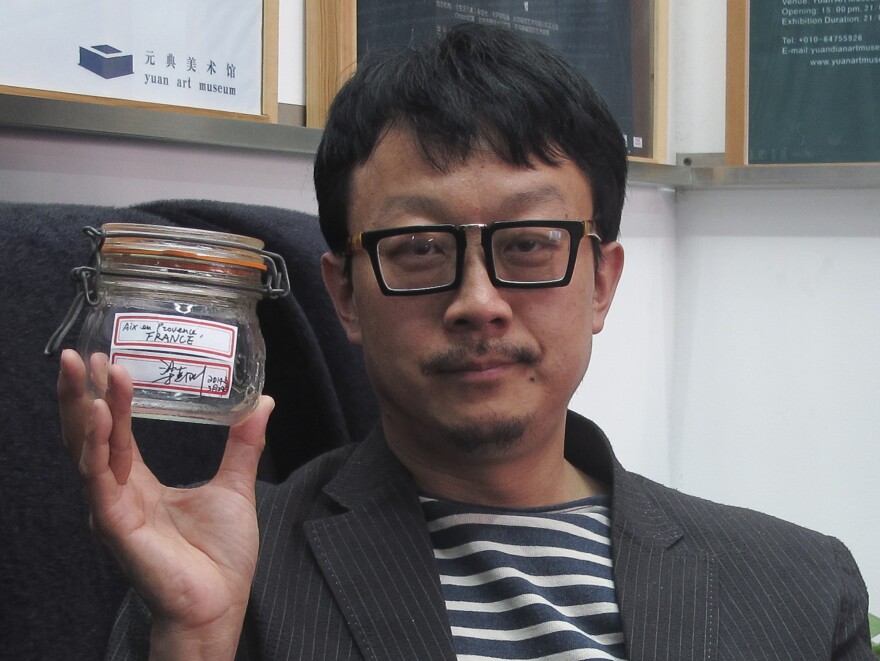It's a classic example of supply and demand: How much would you pay for a bottle of fresh air in one of the world's most polluted cities?
When Beijing artist Liang Kegang returned home from a vacation in France, he brought with him a jar of clean air he had collected from Provence. At auction in a group of about 100 fellow artists and collectors, the jar of air fetched the equivalent of $860, according to The Associated Press.
Of course, whoever made the winning bid was probably trying to help Liang make a point: "Air should be the most valueless commodity, free to breathe for any vagrant or beggar," the artist said in an interview.
"This is my way to question China's foul air and express my dissatisfaction," he said.
It's similar to a story reported last year in which Chinese entrepreneur Chen Guangbiao started selling cans of fresh air for considerably less, just 80 cents, mostly to emphasize China's choking smog.
And, last month, The Daily Mail reported that as part of a scheme to attract tourists to the relatively smog-free region of southwestern Guizhou province, authorities there would sell bottles of the local air.
In rapidly industrializing China, where largely unregulated factories belch out toxins with abandon, smog has quickly gone from simply an annoyance to something very close to an environmental crisis.
In August we reported that the Chinese territory of Hong Kong's smog problem had become so bad that it had to erect a photographic backdrop of the city's iconic skyline draped in clear, blue skies, so tourists could snap souvenir pictures.
Last October, the city of Harbin, home to 11 million people, came to a virtual standstill as traffic slowed and the airport was shut down because air pollution had reduced visibility to only a few feet. Harbin's smog was so bad, it could be seen from space.
And, in December, Shanghai's pollution levels were, quite literally, off the charts. Officials there said the Air Quality Index soared about 500 for the first time ever, a reading they described ominously as "beyond index."
Copyright 2021 NPR. To see more, visit https://www.npr.org. 9(MDIxMDkyNjUxMDE0NDY1Njg1NzRiOTRiYQ000))





